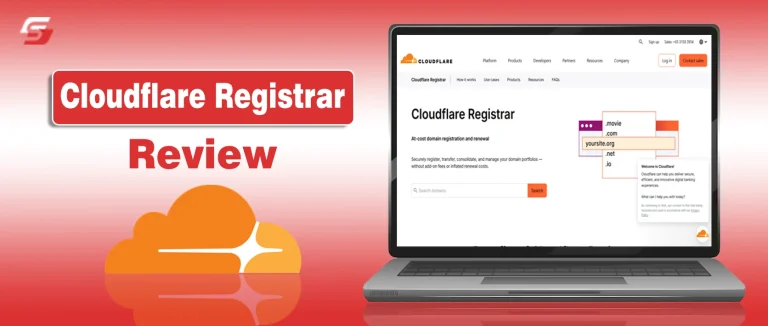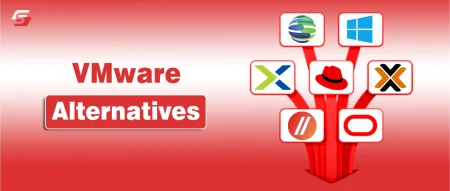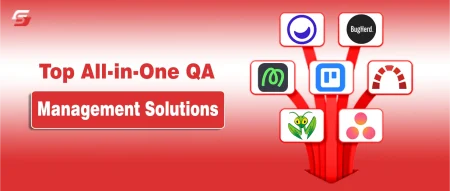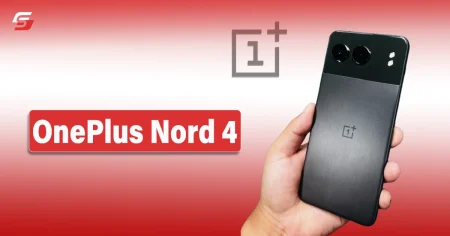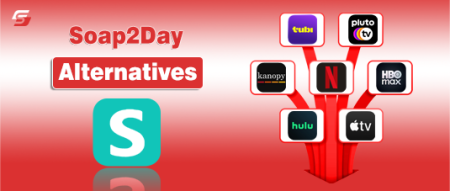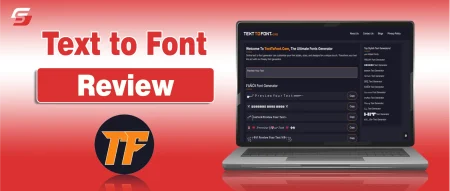Buying and managing domains sounds easy until hidden fees and confusing renewals appear. Many registrars offer cheap deals upfront but charge more later. Cloudflare Registrar claims to fix that with honest, at-cost pricing and solid security.
With its promise of fair pricing and privacy protection, Cloudflare has caught the attention of businesses and developers alike. Still, how well does it perform in real use? Recent Cloudflare hosting reviews highlight both its strengths and its limitations.
This guide explores what makes Cloudflare Registrar different, how its pricing works, and what users actually experience. By the end, you’ll know if it’s the right choice for affordable and secure domain management.
What Is Cloudflare?
Cloudflare is a global web performance and security company. It helps websites run faster and stay protected from online threats. Cloudflare manages millions of domains worldwide. Its network acts as a shield between websites and visitors, blocking harmful traffic before it reaches the site.
The company offers a range of services like CDN, DNS management, SSL encryption, and DDoS protection. These tools improve speed, reliability, and security. Many website owners use Cloudflare because it’s easy to set up and affordable.
What Is Cloudflare Registrar?
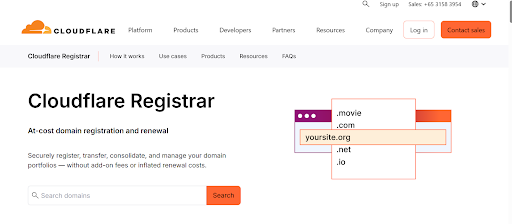
Cloudflare Registrar is a domain registration service by Cloudflare. It lets you buy and manage domain names easily. Unlike many registrars, it doesn’t charge extra fees or markups. You pay the same cost Cloudflare pays to registries and ICANN. This makes it one of the most affordable domain services available.
It also includes strong security features like DNSSEC and WHOIS privacy. Cloudflare Registrar integrates smoothly with other Cloudflare services. It’s designed for people who want transparent pricing, secure management, and reliable performance without hidden charges.
Cloudflare Registrar Security Features
Cloudflare takes domain security seriously. It offers strong protection tools to keep your domains safe and under your control. Here are its main security features:
- DNSSEC Support: Protects your domain from DNS spoofing by adding an extra security layer.
- Two-Factor Authentication (2FA): Adds an extra step to secure your Cloudflare account from unauthorized access.
- Automatic HTTPS: Ensures all websites connected to your domain use secure HTTPS connections.
- WHOIS Privacy: Hides your personal information from public databases to prevent spam and identity theft.
- Registrar Lock: Prevents unauthorized domain transfers or changes without your permission.
- Automatic Renewal: Keeps your domains active by renewing them before expiry.
- Real-Time Threat Monitoring: Detects and blocks suspicious traffic to protect your website and DNS.
- Account Access Controls: Let you manage who can access or edit domain settings.
Cloudflare Registrar Pricing
Cloudflare Registrar offers transparent and fair pricing. You only pay the actual Cloudflare domain pricing. There are no markups or hidden charges. This transparency makes it one of the most affordable options for domain owners. Let’s look at its main pricing models.
1. Free Plan
Cloudflare doesn’t offer a traditional free domain registration plan. Instead, it provides free DNS and security tools for all users. These features include DNSSEC, WHOIS privacy, and automatic renewal settings. While domain registration costs money, the extra security and management tools come at no additional cost.
2. Pay-As-You-Go
The pay-as-you-go model means you pay only the base registry and ICANN fees. Cloudflare doesn’t add profit margins to these prices. You can register or renew a domain at any time at the same transparent rate. This pricing model ensures you get the Cloudflare cheapest domain
without tricky renewal price hikes or bundled upsells.
3. Contract Plan
Cloudflare Registrar doesn’t offer fixed contract plans or long-term pricing commitments. Instead, users can register domains for up to ten years, depending on the TLD. You can extend or renew your registration anytime at the same registry cost. This approach keeps pricing flexible, simple, and consistent for both individuals and businesses.
Can I Change Nameservers With Cloudflare Registrar?
You can change nameservers with Cloudflare Registrar, but there are limits. Cloudflare requires all registered domains to use its own nameservers. This helps ensure better security, DNS management, and integration with its other tools. However, you can’t switch to third-party nameservers or create private ones while using Cloudflare Registrar.
If you prefer to manage DNS externally, this setup might feel restrictive. For most users, though, Cloudflare’s built-in DNS system offers speed and reliability. It automatically handles security settings like DNSSEC and SSL. In short, you can manage nameservers easily, but only within the Cloudflare ecosystem.
Users’ Reviews On Cloudflare Registrar
Some users have shared their experience and review on Capterra after using Cloudflare. Let’s have a look at some reviews that help you to make a decision whether it’s useful or not for the users.
Review No 1:
Vojtěch H. has shared a detailed review of the services after using Cloudflare. He found some benefits and some drawbacks at the same time. However, he gave 5/5 stars to the tool.
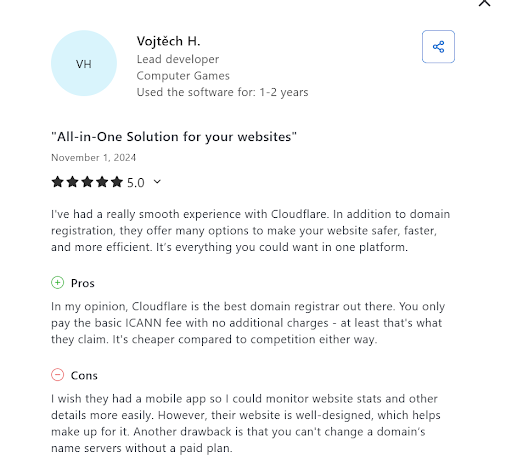
Review No 2:
Paul P. also shared his experience and gave 5/5 stars, which shows that he liked the services. Here we have the details of his review.
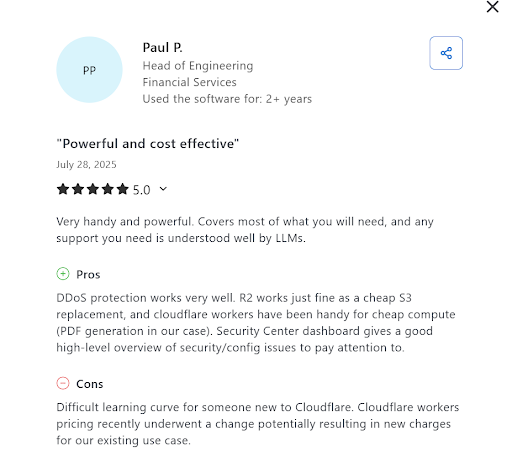
Pros And Cons Of Cloudflare
Pros Of Cloudflare
- Transparent Pricing: Cloudflare charges only the registry cost with no hidden markups or surprise renewals.
- Strong Security: It includes DNSSEC, WHOIS privacy, and auto-renewal to keep your domains safe.
- Consistent Renewal Costs: You pay the same price every year since Cloudflare domain renewal prices do not change oftely.
- Fast DNS Performance: Its global network ensures quick website loading and minimal downtime.
- Integrated Services: You can manage your domains, DNS, and security tools in one dashboard.
- User Privacy: Cloudflare hides your personal details from public WHOIS databases automatically.
- No Add-on Pressure: It doesn’t push unnecessary paid extras or upsells during the registration process.
Cons Of Cloudflare
- Limited TLD Support: Some rare or newly released domain extensions aren’t available yet.
- Restricted Nameservers: You must use Cloudflare’s nameservers, which limits flexibility for advanced users.
- Few Domain Tools: It lacks features like bulk edits or advanced DNS templates for large portfolios
- Less Beginner-Friendly: The interface may feel technical to users new to domain management.
- Limited Bulk Transfers: Moving multiple domains at once can be slow or inconvenient.
- Locked Ecosystem: Using Cloudflare Registrar ties you to its platform for most domain settings.
Cloudflare Vs Vpn: Are They The Same?
Cloudflare and a VPN serve different purposes, though both help improve online security. Cloudflare protects websites from attacks, speeds up site performance, and manages domain services.
On the other hand, a VPN, or Virtual Private Network, secures your internet connection by encrypting your data and hiding your IP address. While both improve safety, they operate on different levels of the internet. Here is a quick breakdown of Cloudflare and VPN.
| Feature | Cloudflare | VPN |
| Purpose | Protects websites and domains | Protects user privacy and data |
| Main Users | Website owners and developers | General internet users |
| Function | Speeds up and secures websites | Encrypts internet traffic |
| Data Encryption | For website data | For all users’ internet data |
| IP Address Protection | No | Yes |
| Setup | Integrated with websites | Installed on devices |
| Access | Controls DNS, CDN, and domains | Accesses blocked content securely |
| Best For | Businesses managing websites | Individuals needing online privacy |
| Example Use | Prevents DDoS attacks on sites | Hides the user’s IP when browsing |
Alternatives To Cloudflare Registrar
Cloudflare Registrar offers great transparency, but it’s not for everyone. If you want more TLD options or advanced features, here are three reliable alternatives worth considering.
1. Namecheap
Namecheap is known for affordable domains and excellent customer support. It offers flexible DNS management, domain privacy, and a user-friendly dashboard. You can easily buy, renew, and transfer domains without hidden costs.
2. Google Domains
Google Domains provides simple management and secure DNS integration. It supports a wide range of TLDs and offers transparent pricing. It’s ideal for users who prefer Google’s familiar interface and reliable infrastructure.
3. Porkbun
Porkbun offers low prices, free WHOIS privacy, and fast customer support. It’s perfect for users seeking value and simplicity. The dashboard is clean, and domain renewals remain consistent with no surprise markups.
Final Words
Cloudflare Registrar continues to grow as more users value simplicity and trust. It’s not just about cheap domains, it’s about reliability and fairness. The platform focuses on long-term transparency, so you always know what you’re paying for. Cloudflare also updates its security tools regularly to stay ahead of threats. For businesses and individuals, this means peace of mind and consistent protection.
You can also get a detailed review of other software, such as Intch.
Frequently Asked Questions
Not yet. It supports many popular TLDs like .com, .net, and .org, but some niche TLDs are still missing.
Yes, you can transfer most domains easily through your Cloudflare dashboard.
Yes, it offers DNSSEC, WHOIS privacy, and auto-renewal features to protect your domains.
No. Renewal prices are the same as the registry’s base cost, with no extra fees.




